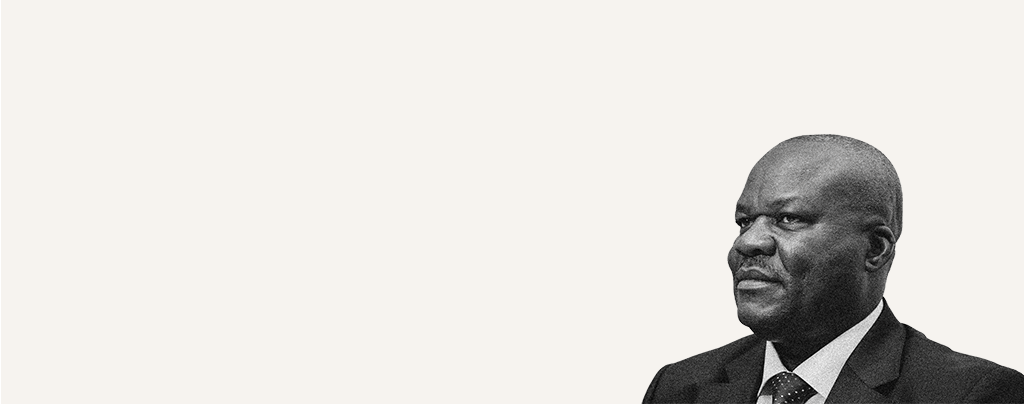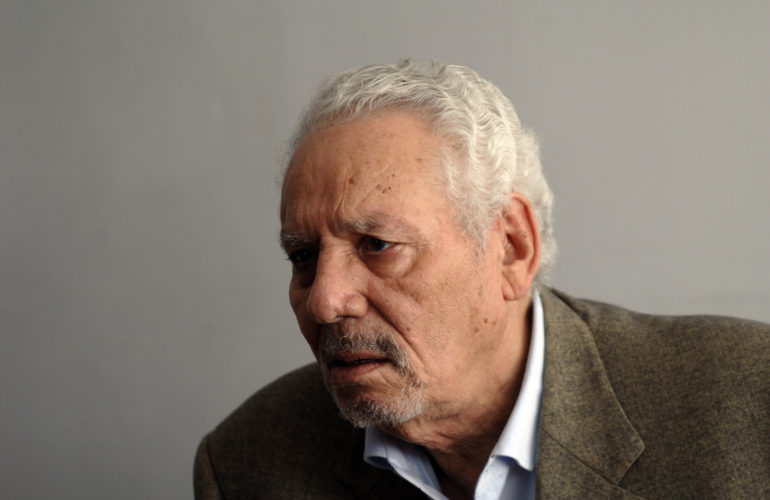

Note:
The daily updates from the trial of Michael Correa, which took place in Denver from 7-15 April 2025, were drafted in partnership with the Center for Justice and Accountability (JCA), the Stanford International Human Rights & Conflict Resolution Clinic, and the International Human Rights Clinic at the University of San Francisco School of Law. The updates posted here are short summaries of the detailed versions published on the dedicated page on the website of the Solo Sandeng Foundation.
Denver, Colorado, USA – Today, a federal judge sentenced Michael Sang Correa to 810 months or 67.5 years in prison for torture committed in The Gambia in 2006.
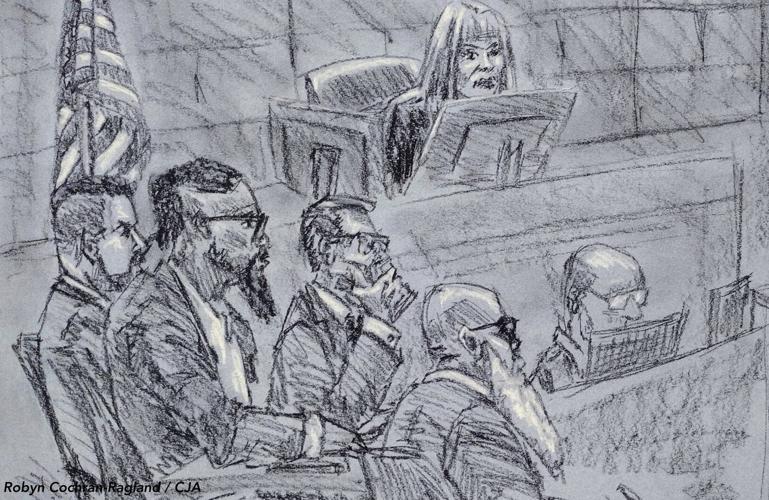
A U.S. Federal Court will be conducting the sentencing hearing of former Jungler, Michael Sang Correa on 22 August 2025, in Denver, Colorado, USA.
On 15 April 2025, after a five-day trial in U.S. federal court, a Denver jury found Michael Sang Correa guilty of five counts of torture and one count of conspiracy to commit torture. Mr. Correa was a member of the Junglers, a notorious death squad in The Gambia.
At the sentencing hearing, both the prosecution and the defense will present arguments in support of the sentences they believe should be imposed. Some of Mr. Correa’s victims will have an opportunity to present statements describing how Correa’s s crimes impacted their lives. The U.S. government is recommending that the Judge impose the maximum sentence of 120 years in prison.
Denver, Colorado, USA 15 April 2025 – Today, a Denver jury found Michael Sang Correa guilty of five counts of torture and one count of conspiracy to commit torture. This verdict marks the first time a U.S. jury has ever held a non-U.S. citizen criminally responsible for torture committed outside of the United States.
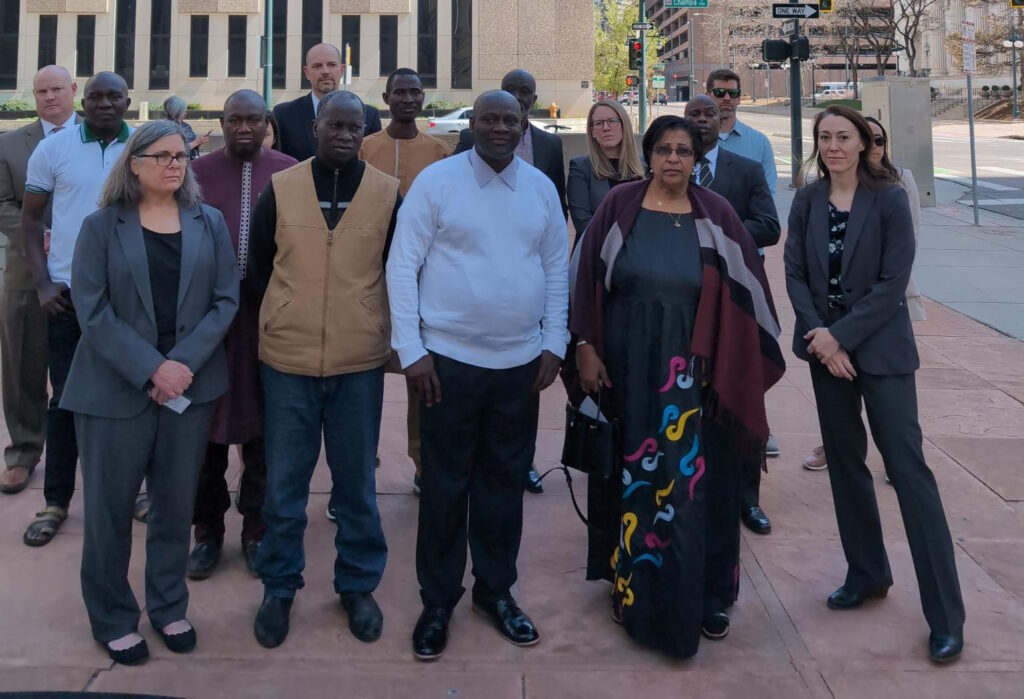
During the historic five-day trial, the jury heard evidence that Mr. Correa was a member of the Junglers, a notorious death squad in The Gambia. Victims and witnesses testified that following an attempted coup against former President Yahya Jammeh’s dictatorship in 2006, Mr. Correa and other Junglers brutally tortured suspected participants in the coup, including by beating them, suffocating them with plastic bags, and subjecting them to electric shocks. The jury unanimously found Mr. Correa guilty of torture and conspiracy to commit torture. Judge Christine M. Arguello, who presided over the trial, will determine Correa’s sentence at a hearing later this year. Mr. Correa can appeal the verdict.
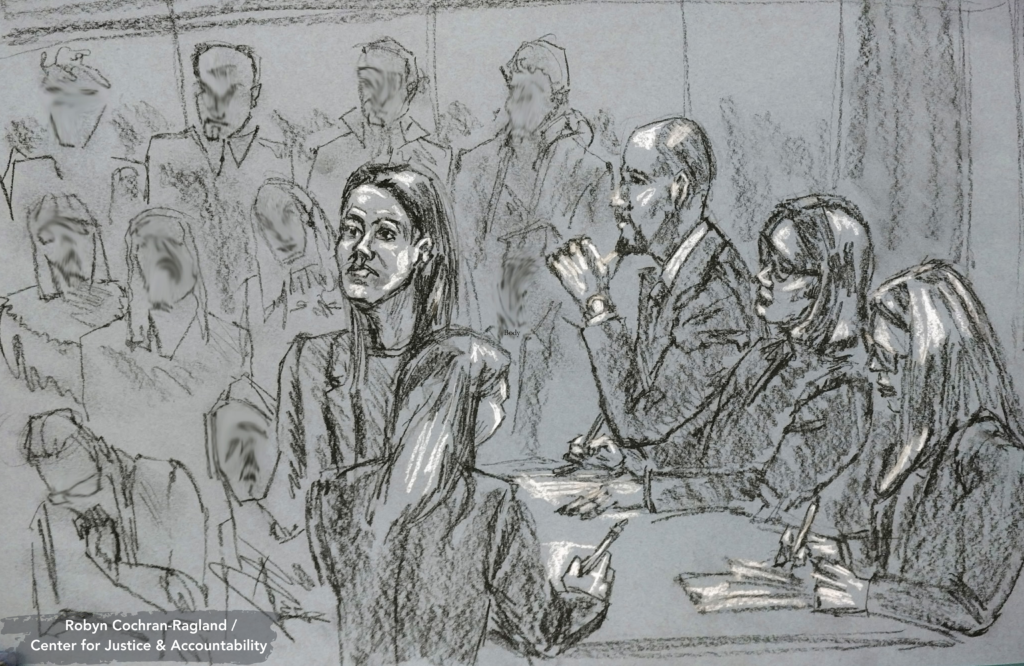
The jury entered the courtroom at 1:59 PM after reaching a unanimous verdict on all charges. Correa was found guilty on counts 1, 2, 3, 4, 6, and 7. Count 1 was conspiracy to commit torture. Counts 2, 3, 4, 6, and 7 related to the torture of Yaya Darboe, Tamsir Jasseh, Demba Dem, Pierre Mendy, and Pharing Sanyang.
The courtroom was packed. Audience members included people who had traveled from The Gambia, members of the Gambian diaspora, human rights advocates, and journalists.
The judge referred the matter to the probation department for a pre-sentencing report. The Prosecution will reach out to the victims to determine whether they wish to exercise their right to be present, speak or submit a victim impact statement. After consulting with the victims, the Prosecution will coordinate with the Defense and the Court to schedule a sentencing date.

On the fifth day of trial, the Prosecution concluded its presentation of evidence. The Defense moved for acquittal, which the judge denied. Both the Prosecution and Defense presented their closing arguments, and the jury began deliberations.
At the start of Garrison’s testimony, the Prosecution resumed playing recordings of Correa’s January 2020 immigration hearing. In the recording, Correa described his involvement with the Gambia Armed Forces, which he joined when he was 21 years old. Two inconsistencies emerged between the government counsel’s questioning in the recording and Garrison’s testimony.
Correa stated that he came to the United States in 2016 to visit family. The reason he didn’t want to return was the change of power, as the new president was arresting army officials and Junglers from the prior regime.
After the Prosecution rested its case, the Defense moved to acquit on all charges. The Prosecution responded to the motion by laying out the evidence presented for each charge. The judge denied the Defense’s motion. After this, the Defense confirmed that Correa would not testify and that they had no additional witnesses.
This was followed by closing arguments by the Prosecution and the Defense.
Next Steps
The jury began deliberations around 3:30 PM and will resume tomorrow.

On the fourth day of trial, testimony was heard from Pharing Sanyang, Ebou Jarjue, Tamsir Jasseh and Barton Garrison:
Pharing Sanyang joined the military before Jammeh’s regime and was working at the State House as a Commander in 2006, where he conducted rescue and weapons training. This sometimes included members of the Junglers in their capacity as members of the military. He was tortured by the Junglers after the coup attempt, to force him to sign a false confession. He still bears the scars stemming from that time.
Ebou Jarjue served as a waiter at the State House from 2001 to 2008. In 2008, he was accused of attempting to poison President Jammeh and was arrested. He was first detained for over nine months and later imprisoned at Mile II for four years.
Following their respective release, both Sanyang and Jarjue escaped to Senegal.
The third witness, Tamsir Jasseh, after completing several degrees in the US, returned to The Gambia to assist with police reform as an advisor. He later became the Director General of Immigration from 2002 to 2005. Though not involved in the March 2006 coup, Jasseh helped a political opponent escape after the failed coup, by driving him to the Gambia/Senegal border. He was subsequently arrested, tortured and sentenced based on a forced confession, despite his dual US citizenship. After his release, he was flown to the US, where he remained until Jammeh left power.
All three identified Correa as being part of their torturers, describing him as “very aggressive”, “overzealous”, and said Correa was “having fun, enjoying himself” while torturing them.
The last witness of the day was Special Agent Barton Garrison from Homeland Security Investigations (HSI), who has been investigating Correa since August 2019, when he located him thanks to payments Correa was making to relatives back in The Gambia, and later arrested him, as his visa had expired. Audio recordings from Correa’s immigration hearings were played.
Next Steps
The trial will resume on Monday, 14 April 2025. The Prosecution will continue questioning Garrison and is expected to call an expert and an additional witness. The Defense may call one or two witnesses on Tuesday before closing arguments. The trial is expected to wrap up early next week.
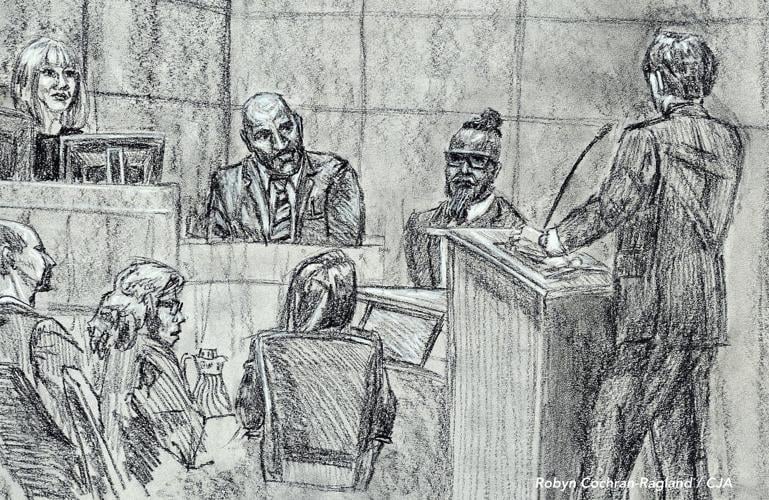
On the third day of the trial, testimony was heard from Yaya Darboe, Sainey Bayo, Special Agent Mathew Gifford and Demba Dem:
The day began with continued questioning of Yaya Darboe by the Defense. Next, the government called Sainey Bayo, who served as the Commanding Officer of two infantry battalions during the 2006 coup. Bayo confidently identified Correa in court, noting that they had worked in the same battalion before 2006.
Special Agent Mathew Gifford of Homeland Security Investigations took the stand next. While working at the U.S. Embassy in Senegal, he investigated Michael Correa and ultimately located him in the United States. Subpoenaed records from Western Union revealed Correa had been sending money to family members, which helped track his whereabouts.
Gifford presented photos of six individuals to several witnesses during his investigation—including one of Correa. Both Ebou Jarjue and Tamsir Jasseh successfully identified Correa in these photo lineups. Jarjue and Jasseh are expected to testify later in the trial.
The final witness of the day was Demba Dem, a former Gambian National Assembly member appointed in 2002. Although he did not participate in the 2006 coup, he was arrested and detained at Mile II Prison. When he failed to give the desired answers during NIA interrogations, he was handed over to the Junglers for torture. He testified that he saw others being tortured, including Pierre Mendy, Yaya Darboe, and Tamsir Jasseh. He finally fled to Senegal with his family, where the NIA attempted to arrest him again. He was ultimately relocated to the Netherlands, where he now resides as a citizen.
Next Steps
The Prosecution is expected to call its final witnesses on Monday, 14 April 2025. The trial will conclude with possible Defense witnesses and closing arguments from both sides. Jury deliberation will follow shortly after.
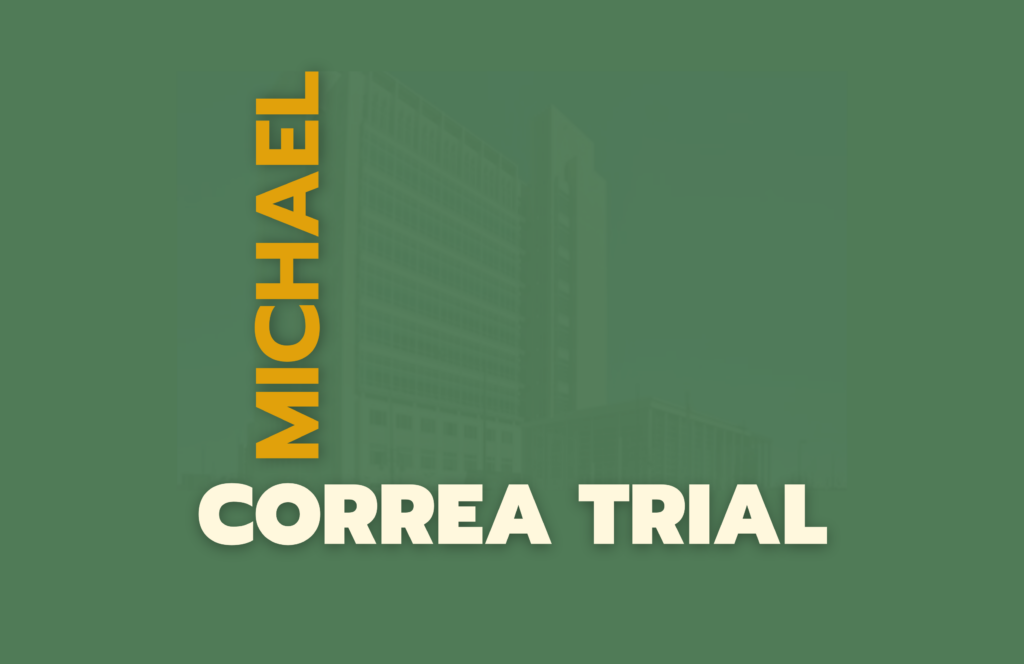
On day two of Michael Correa’s trial in the United States, the government and defense counsels delivered opening statements to the jury, outlining their respective theories of the case and highlighting key pieces of evidence they intend to introduce during the trial to prove their cases.
The government’s opening statement explained the trial is focused on acts of torture committed by Junglers following the failed 2006 coup at the instructions of then President Jammeh. The government emphasized the Junglers had choices, and Michael Correa chose to torture the victims.
In contrast, the defense stated Michael Correa is not guilty because he had no choice as a mere private at the very bottom of the security forces’ hierarchy. He was coerced, and if he did not comply, he would have faced imprisonment, torture and possibly death, for being perceived as disloyal to the President.
After the opening statements, the government proceeded with its case, calling three witnesses. The first witness was an expert who testified on The Gambia’s history and political climate surrounding the 2006 failed coup. The second and third witnesses, Alieu Jobe and Yaya Darboe, testified that they were tortured by Junglers and interrogated by a panel of officials at the NIA headquarters until they forcibly confessed to participating in the 2006 coup attempt. Both witnesses identified Michael Correa as one of the Junglers who tortured them.
The government admitted 28 exhibits into evidence. The exhibits include maps of the region, photos of NIA headquarters and of Mile 2 Prison, as well as photos of scarring Yaya Darboe sustained from torture.
Next Steps
Trial will resume tomorrow at 8:00AM, beginning with the cross examination of Yaya Darboe. The government will continue to call witnesses in presenting its case.

Monday, 7 of April 2025, marks the first day of the United States’ prosecution against alleged Jungler, Michael Sang Correa. The trial is held in Denver, Colorado, where he was arrested. Michael Correa has been charged with seven counts:
- The first is conspiracy to commit torture, which means he worked with others to inflict severe pain on their victims.
- The second, third, fourth, fifth, sixth and seventh counts are for torture and helping others to commit torture – one for each of the six victims included in this case.
Today, U.S. government prosecutors requested to dismiss the fifth count because the victim could not be present at trial. The Court granted the request. The Court then began jury selection.
This is a critical trial for truth processes in The Gambia and human rights advocacy in the United States. Correa is the third member of Jammeh’s regime to be prosecuted. In addition, his trial is only the third of its kind under the U.S. Torture Act, which is an example of universal jurisdiction.
The trial is expected to last two weeks and end on 18 April 2025. The prosecution and the defense will present evidence at the trial, including documents and witness testimony. The prosecution may call on some of the victims of Correa’s alleged torture to testify. After the evidence is presented, the jury will deliberate and come to a decision.
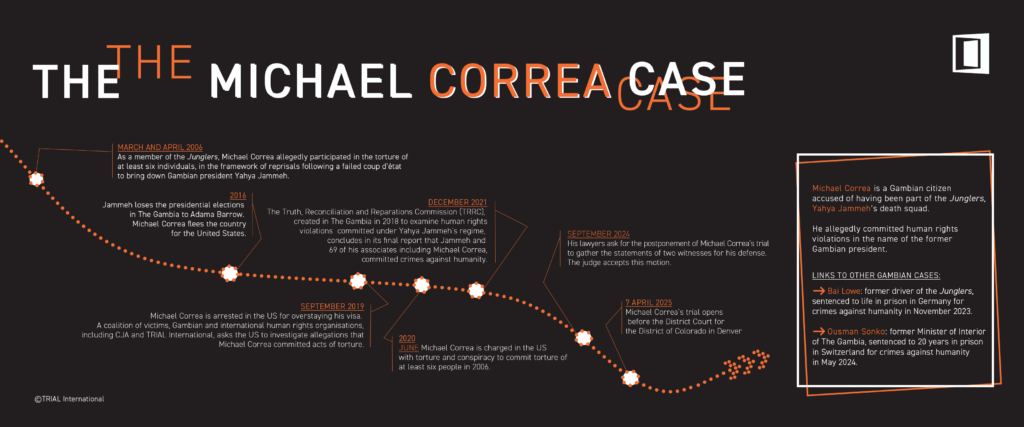
Michael Sang Correa, an alleged member of a Gambian death squad, is scheduled to stand trial for torture starting on April 7, 2025. This marks the first time a non-U.S. citizen will stand trial in a U.S. federal court for torture committed abroad.
The trial against Michael Sang Correa for torture allegedly committed in The Gambia, originally scheduled for 16 September 2024, has been postponed. It was rescheduled to 7 April 2025.

Denver (United States) and Banjul (The Gambia), 26 August 2024 – Michael Sang Correa, an alleged member of a Gambian death squad, is scheduled to stand trial for torture starting on 16 September 2024 in Denver. This marks the first time a non-U.S. citizen will stand trial in a U.S. federal court for torture committed abroad.
Frequently asked questions and answers
Michael Correa will stand trial from 16 to 27 September 2024 for allegedly torturing people in The Gambia in 2006. He is accused of being part of the “Junglers”, a death squad that committed human rights abuses at the direction of former President Yahya Jammeh. In 2020, the U.S. Department of Justice charged Correa under the Torture Act, which allows the U.S. to prosecute individuals within its territory for acts of torture committed outside its borders. His trial will take place in the U.S. District Court for the District of Colorado in Denver.
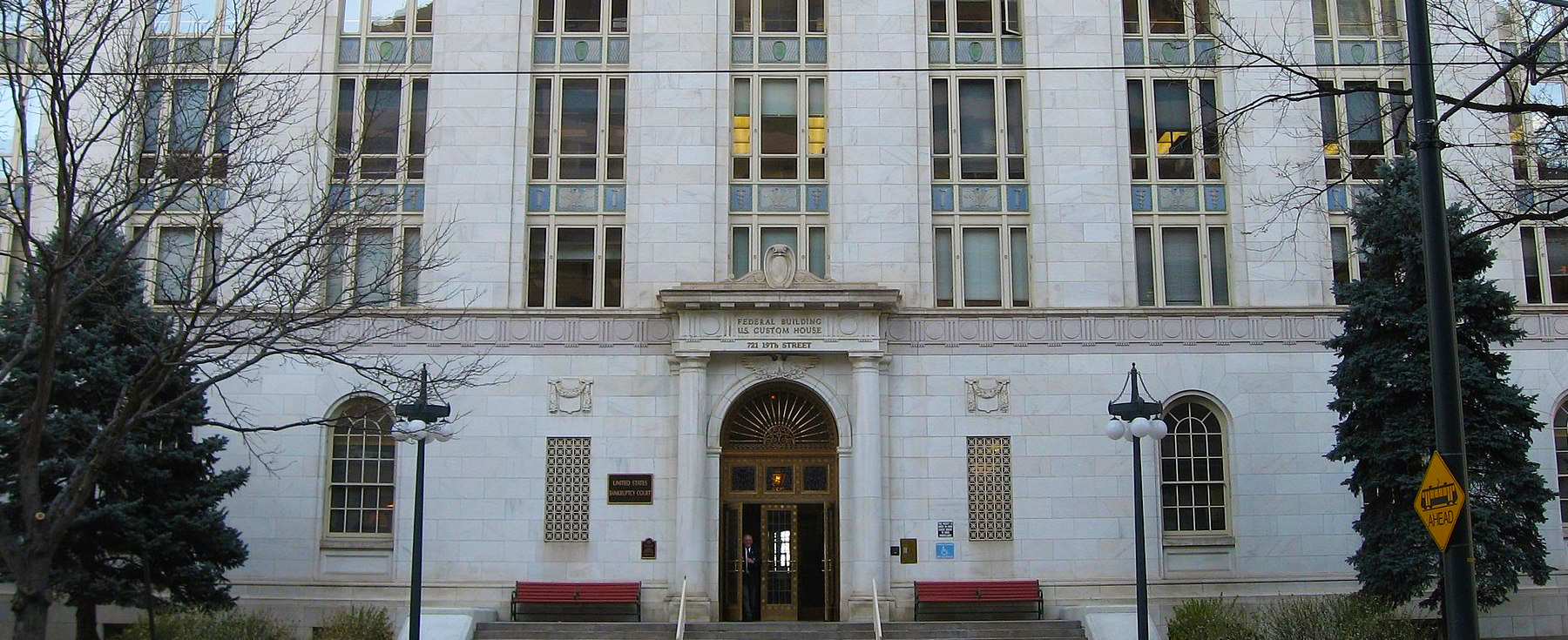
Michael Correa, an alleged member of former Gambian dictator Yahya Jammeh’s notorious “Junglers” death squad, is scheduled to stand trial in Denver, Colorado, starting September 16, 2024. Correa faces charges of torture and conspiracy to commit torture. The historic trial is a major step towards truth and justice for Gambian victims and the first ever trial in the United States based on the principle of universal jurisdiction.

Two years ago, The Gambia created a key tool for transitional justice: the Truth, Reconciliation and Reparations Commission (TRRC). The eleven commissioners of the TRRC are tasked with shedding light on the many abuses that took place under Yahya Jammeh‘s regime between 1994 and 2017. The TRRC hearings, which began in 2019, are being attended by many Gambians. They have so far shed light on dark areas of the past through testimony of victims, witnesses and insiders of the former regime. The mandate of the Commission has recently been extended until the spring of 2021.
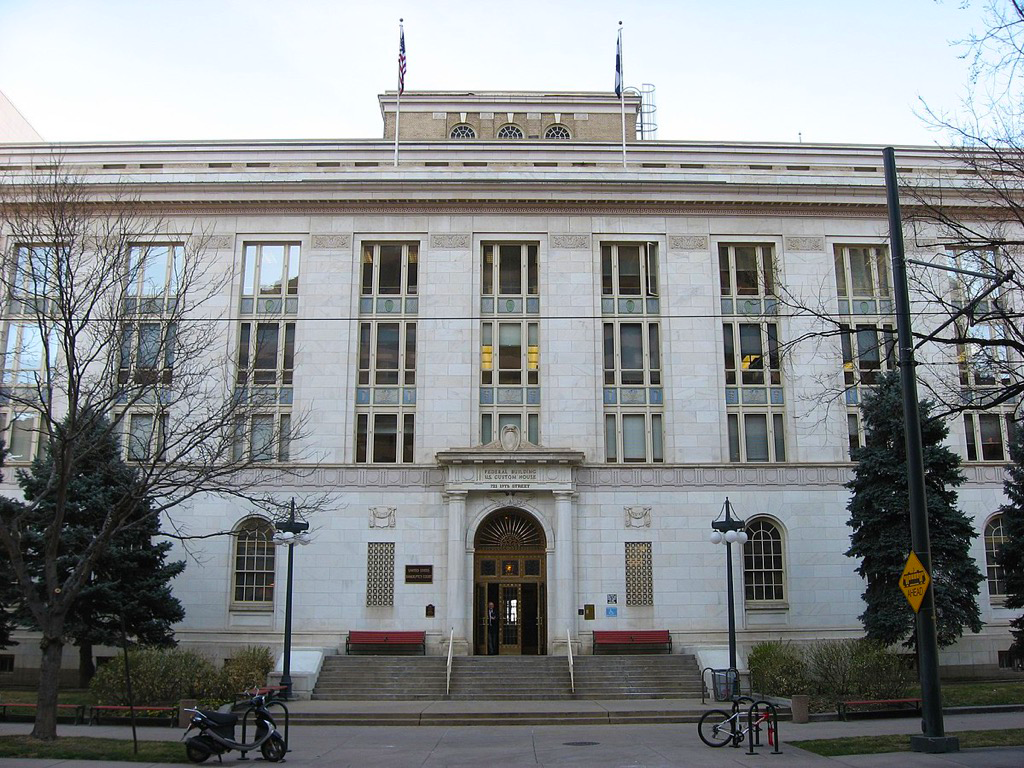
On 3 December 2020, former member of the elite Gambian paramilitary unit Michael Correa appeared before a US District Court in Colorado, as part of a preliminary hearing. He has been accused of acts of torture committed in The Gambia on behalf of the administration of former President Yahya Jammeh. However, due to the complexity of the case, its international focus and the pandemic, the case will probably not move forward for some time.

For more than 20 years, Yahya Jammeh and his elite paramilitary unit, the Junglers, ruled the small West African nation of The Gambia with an iron fist. Extrajudicial executions, acts of torture, and enforced disappearances, the Gambian people endured decades of abuse. Today, victims are demanding justice. Will it be rendered?
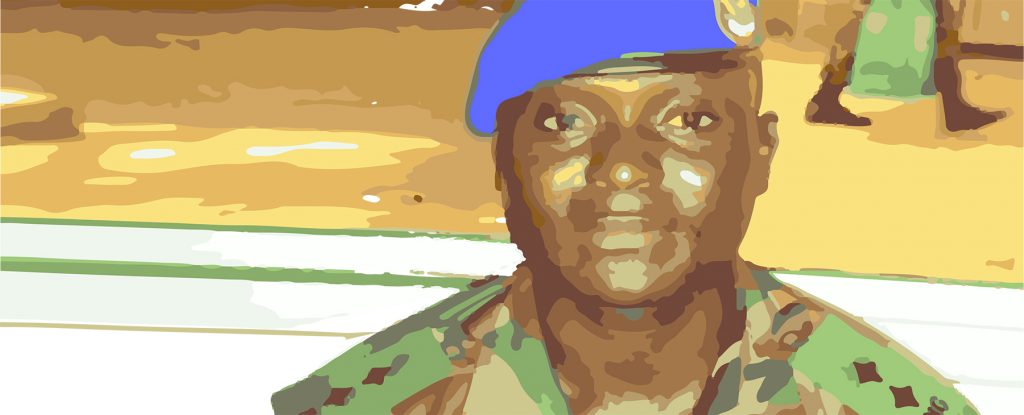
The indictment in the United States on 11 June 2020 of an alleged former Gambian “death squad” member on torture charges is an important step for Gambian victims and international justice, a coalition of human rights groups said on 12 June 2020, who have acknowledged the news as a major advance for victims of abuses during Yahya Jammeh rule.


